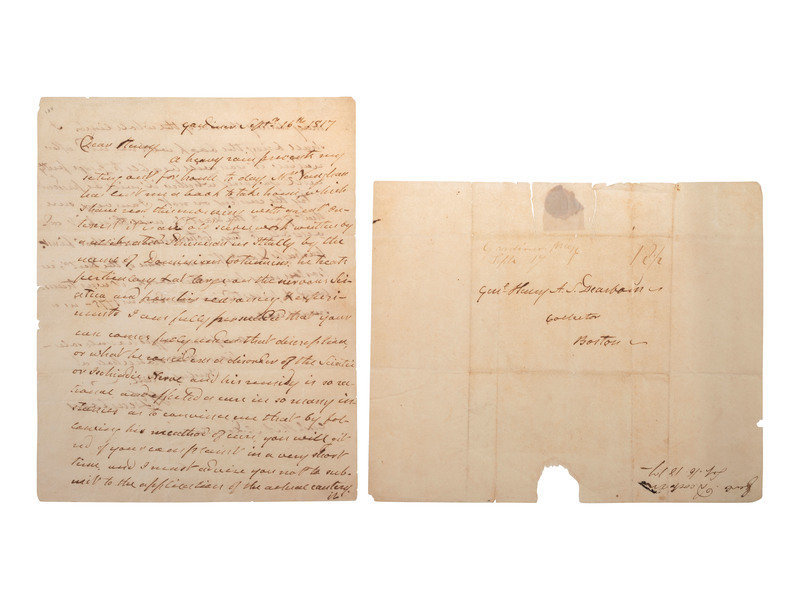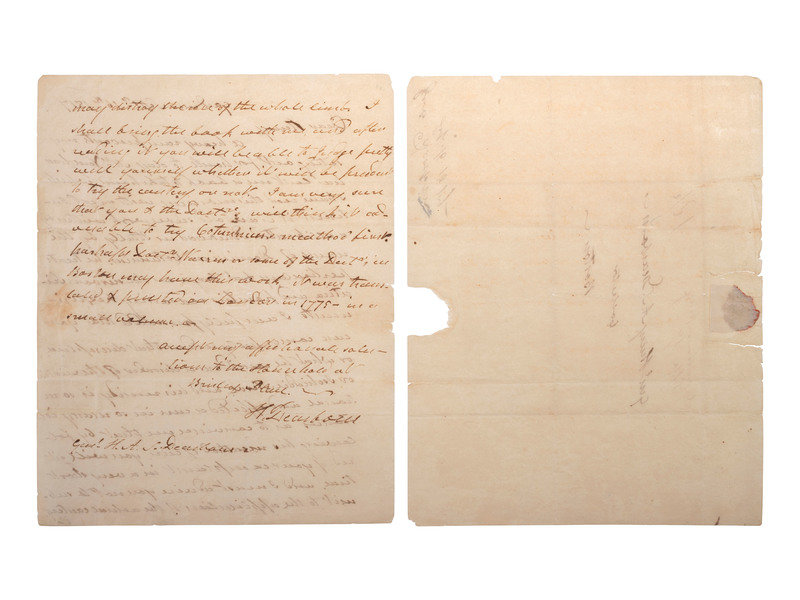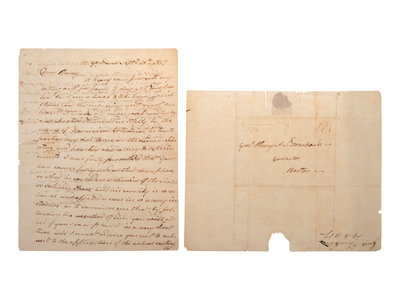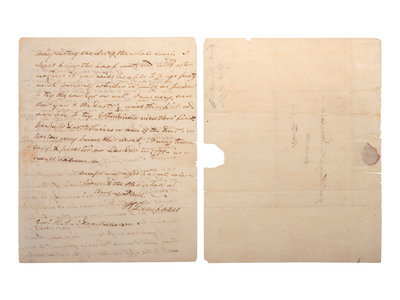Lot 33
DEARBORN, Henry (1751-1829). Autograph letter signed ("H. Dearborn"), in which Dearborn advises his son on the treatment of sciatica. Gardiner, 16 September 1817.
Sale 1192 - American Historical Ephemera & Photography
Lots 1-294
Jun 15, 2023
10:00AM ET
Lots 295-567
Jun 16, 2023
10:00AM ET
Live / Cincinnati
Own a similar item?
Estimate
$400 -
600
Price Realized
$252
Sold prices are inclusive of Buyer’s Premium
Lot Description
DEARBORN, Henry (1751-1829). Autograph letter signed ("H. Dearborn"), in which Dearborn advises his son on the treatment of sciatica. Gardiner, 16 September 1817.
2 pages, on fully separated bifolium, 7 3/4 x 9 3/4 in., old folds, chipping to edges, loss and repair to address leaf. Addressed on fully separated leaf, docketed.
In this letter to his son, General Henry Alexander Scammell Dearborn, the senior General Henry Dearborn advises the junior Dearborn regarding a sciatic nerve problem he is experiencing. Referencing a medical book by Italian physician Dominicus Cotunnius, he writes, in part: "I am fully persuaded that your case comes fully under that discipline or what he considers a disorder of the Sciatic or Ischiadic Nerve and his remidy [sic] is so [indecipherable] and effected a cure in so many instances as to convince me that by following his method of cure you will git [sic] rid of your complaint in a very short time. I must advise you not to submit to the application of the actual cautery. It may destroy the use of the whole limb."
Henry Dearborn (1751-1829) first studied medicine as a young man, practicing in Nottingham, New Jersey from 1772, before earning renown as a military leader in the Continental Army and later US Army, and eventually serving as the 5th United States Secretary of War. His medical writings are very scarce, though he clearly remained interested in medicine long after he was no longer practicing.
In this letter to his son, General Henry Alexander Scammell Dearborn, the senior General Henry Dearborn advises the junior Dearborn regarding a sciatic nerve problem he is experiencing. Referencing a medical book by Italian physician Dominicus Cotunnius, he writes, in part: "I am fully persuaded that your case comes fully under that discipline or what he considers a disorder of the Sciatic or Ischiadic Nerve and his remidy [sic] is so [indecipherable] and effected a cure in so many instances as to convince me that by following his method of cure you will git [sic] rid of your complaint in a very short time. I must advise you not to submit to the application of the actual cautery. It may destroy the use of the whole limb."
Henry Dearborn (1751-1829) first studied medicine as a young man, practicing in Nottingham, New Jersey from 1772, before earning renown as a military leader in the Continental Army and later US Army, and eventually serving as the 5th United States Secretary of War. His medical writings are very scarce, though he clearly remained interested in medicine long after he was no longer practicing.
Property from the James Milgram, M.D., Collection of Broadsides, Ephemeral Americana, and Historical Documents
Condition Report
Contact Information
Auction Specialist



